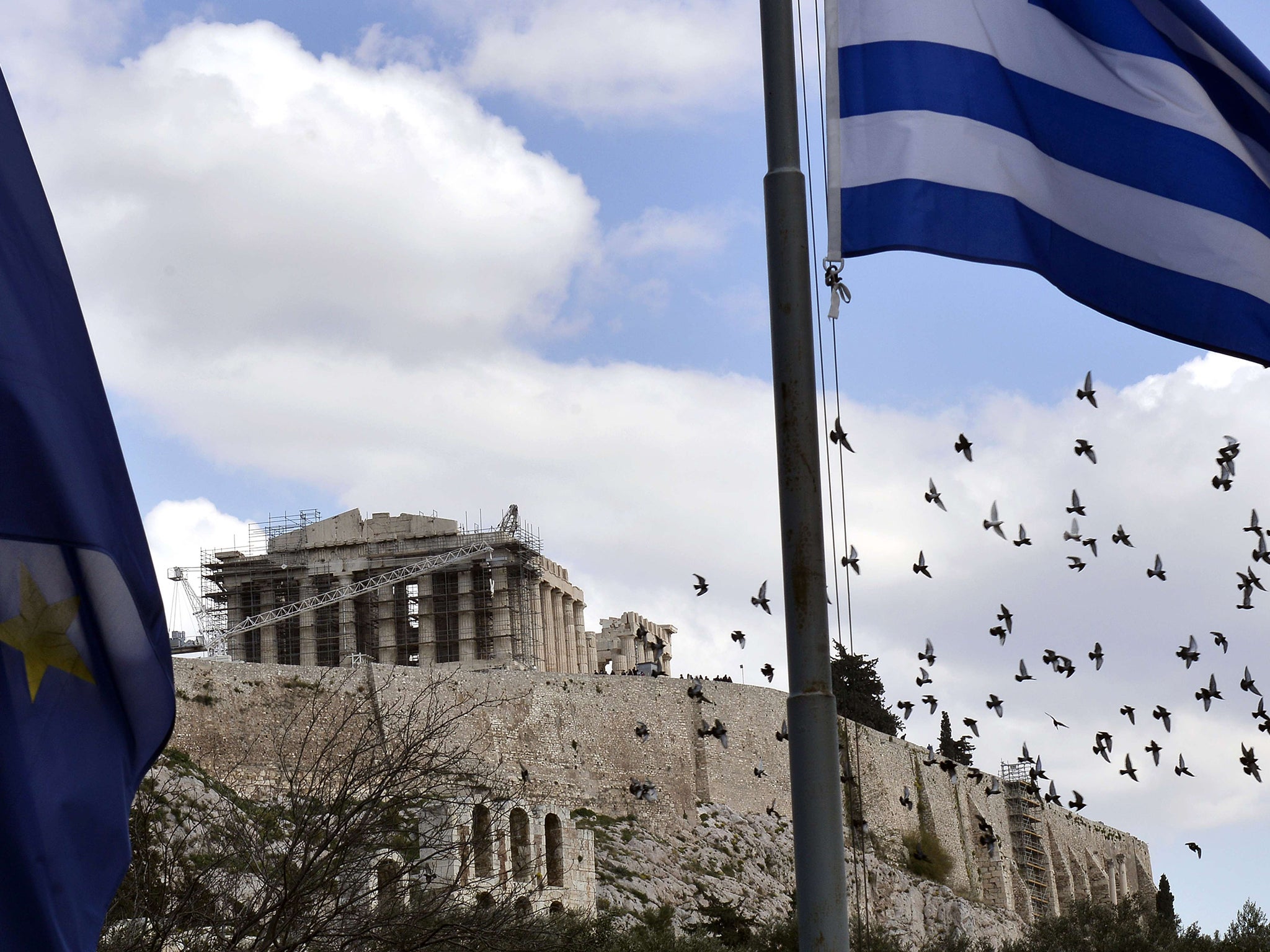A 'wriggle' or a 'Trojan Horse'? Greece's olive branch to creditors gets short shrift
Yesterday’s war of words with Germany raised fears of a Greek exit

Your support helps us to tell the story
From reproductive rights to climate change to Big Tech, The Independent is on the ground when the story is developing. Whether it's investigating the financials of Elon Musk's pro-Trump PAC or producing our latest documentary, 'The A Word', which shines a light on the American women fighting for reproductive rights, we know how important it is to parse out the facts from the messaging.
At such a critical moment in US history, we need reporters on the ground. Your donation allows us to keep sending journalists to speak to both sides of the story.
The Independent is trusted by Americans across the entire political spectrum. And unlike many other quality news outlets, we choose not to lock Americans out of our reporting and analysis with paywalls. We believe quality journalism should be available to everyone, paid for by those who can afford it.
Your support makes all the difference.Germany appeared to slap away an olive branch from Greece yesterday, raising fears that the Mediterranean country could crash out of the single currency within weeks.
On a day of high drama, the Athens government first seemed to perform a U-turn, formally asking its eurozone creditors to extend the country’s bailout for six months and vowing to bring it to a “successful conclusion” – something it promised earlier in the week that it would not do.
But while most observers regarded the request as a major capitulation from Alexis Tsipras’s Syriza Party, the German authorities immediately denounced the offer as an attempt by Athens to wriggle out of the reform requirements of the original bailout.
“The letter from Athens is not a substantive proposal for a solution,” said Martin Jager, a spokesman for Germany’s finance ministry. “In truth, it aims at bridge financing without fulfilling the demands of the programme.” Other German sources described the Greek offer as a “Trojan Horse”.
European finance ministers will meet for another emergency session in Brussels today try to hammer out an agreement which, it is hoped, will prevent a collapse of Greece’s banking system and a debt default. Monday’s attempt to forge an agreement between Greece and its creditors collapsed in less than four hours.
Athens blames the 2010 European Union/International Monetary Fund bailout for pushing the country into a catastrophic depression. It wants an overhaul of the €172bn support package, involving less public-sector austerity each year and a write-down of the country’s liabilities. Germany and other creditors insist they will not negotiate until Greece agrees to complete the bulk of the original reform programme.
Yesterday’s dispute centred on the technical language of the Greek request. Rather than asking for an extension of the bailout, it requested a six-month extension of the “master financial assistance facility agreement”. German officials said this was too imprecise.
However, the Greek letter of request did also explicitly say that Athens would “co-operate closely with the European Union’s institutions and with the International Monetary Fund”. Analysts also interpreted that as a significant climbdown in view of Syriza’s statement upon winning last month’s general election that it would refuse to deal with the EU/IMF/ECB Troika.
Greece’s government is running short of money and the bailout is due to end on 28 February. Without an extension in place by then, Greek banks could find themselves shut off from emergency liquidity support from the European Central Bank. That would likely be the trigger for Greece to impose capital controls, halt debt interest repayments and to leave the single currency.
The ECB increased its liquidity support for Greece’s banks by €3bn to €68bn yesterday. The Greek central bank had requested a €10bn extension. Around €2bn of deposits are estimated to be flowing out of the Greek system each week as doubts multiply over its future within the eurozone.
Relations between the Greek finance minister and his German counterpart, Wolfgang Schäuble, are reported to be extremely poor. But there could be hope for conciliation from other quarters. The Greek Prime Minister, Alexis Tsipras, and German Chancellor, Angela Merkel, spoke by telephone for 50 minutes yesterday, with one Greek government official describing the call as “constructive”. And the European Commission President, Jean-Claude Juncker, saw the latest Greek letter as a “positive sign” according to his spokesperson yesterday.
Join our commenting forum
Join thought-provoking conversations, follow other Independent readers and see their replies
Comments